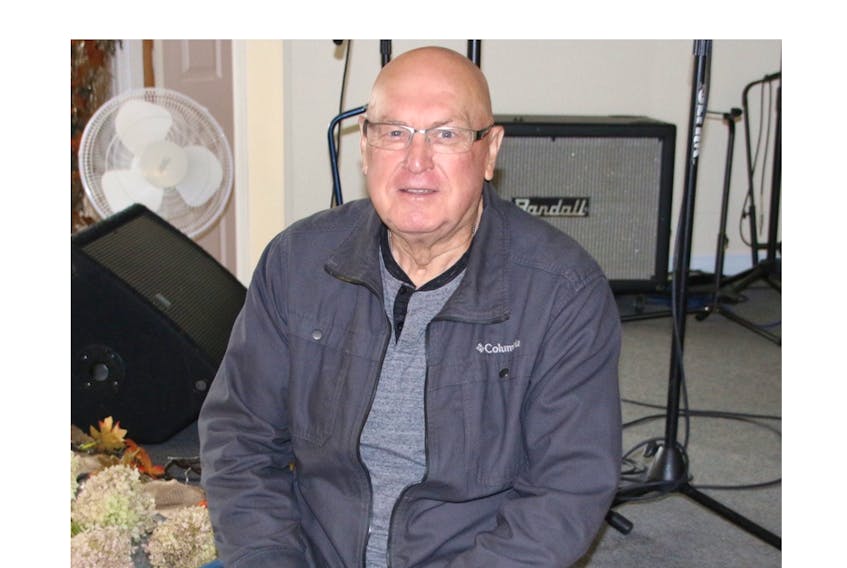TRURO, N.S.
Budd Holmans couldn’t understand why putting fuel in his car would set his heart racing.
“I was in Cyprus for six months, right after it was invaded by Turkish forces,” he recalled. “I was in a foxhole with artillery falling around me.”
Years later, he now knows the episodes triggered while filling up his vehicle were related to that experience in Cyprus, in 1974.
“It was when I was at the operational stress and injury clinic that I connected things. When I was in the foxhole it was near a gas station, and I could smell the fumes.”
Holmans was a member of the military police. On more than one occasion, he conducted conversations with a gun pointed at him.
Holmans and his wife of 35 years, Anne, moved to Truro this fall and have begun volunteering with Upper Room Mission and Soul’s Harbour Rescue Mission.
He’s spent 15 years in the military, before he left. But the experiences changed Holmans.
“I was drinking excessively, I was impatient and I had problems with anger,” he said. “Anger would be overflowing; it would be totally consuming.”
He also had trouble with his nerves when he heard fireworks.
Holmans knew little of post-traumatic stress disorder (PTSD) at the time, and just figured he’d have to deal with things the best he could.
He joined the reserves and went on to hold other jobs, including several in security and one with Corrections Canada. He’d be employed for a while, but then would have to take time off to deal with his emotional state.
A first marriage, then a second, both ended in divorce.
“When I look back now I can see how the effects of PTSD went up and down.”
On attending the operational stress and injury clinic, he took steps to improve his life.
“I attended (alcoholics anonymous) meetings, and that works well for some people, but it wasn’t for me,” he said. “I was able to conquer alcohol by working on the issues causing the problem.
“I take the focus off of self by helping those less fortunate. I operate from a perspective of love toward others. Faith is a big thing for me, but I don’t believe in forcing it on anyone.”
Originally from Newfoundland, Holmans had been living in Alberta for several years. A connection with Terry Dryden, pastor at Upper Room Mission, brought him to Truro.
“When I was here meeting with Terry, it just seemed I was getting messages letting me know this is where I should be, so we moved.”
PTSD
Budd Holmans wants Christopher Garnier to receive treatment. He just doesn’t think it should come through Veterans Affairs, and he feels Canadian veterans deserve to know which department will cover the costs.
In September, the public learned that Garnier, convicted of second-degree murder in the death of off-duty Truro police officer Catherine Campbell, was to have treatment for PTSD covered by Veterans Affairs, since his father is a veteran. Following public outcry, the department announced it would no longer pay for benefits for incarcerated relatives of veterans but would not say where this leaves Garnier’s case.
“The optics are terrible, especially in view of all the difficulties veterans have had in dealing with government,” said Holmans, who served 15 years in the regular forces and about seven in the reserves.
“They should just admit this was a mistake. That’s all veterans are looking for.
“Care should be provided through the proper agency.”
He contends Corrections Canada should be responsible for Garnier’s treatment.
“It’s available through Corrections, and we have veterans waiting up to two years for a decision on disability,” he said.









